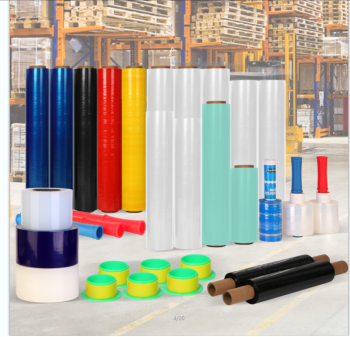Biodegradable Handbags Eco-Friendly, Durable & Sustainable Designs
- Industry Insights: The Growing Demand for Sustainable Packaging
- Technical Superiority in Biodegradable Material Engineering
- Comparative Analysis of Leading Eco-Bag Manufacturers
- Tailored Solutions for Commercial & Retail Requirements
- Real-World Implementation Across Multiple Industries
- Environmental Impact Metrics and Degradation Timelines
- Future Innovations in Biodegradable Handbag Technology

(biodegradable handbags)
Why Biodegradable Handbags Are Reshaping Retail Packaging
The global biodegradable packaging market grew at 18.7% CAGR from 2021-2023, reaching $12.6 billion valuation (Grand View Research). Traditional plastic bags take 1,000+ years to decompose, while certified biodegradable alternatives fully degrade within 3-36 months under industrial composting conditions. Major UK supermarkets have reported 41% reduction in single-use plastics since adopting compostable shopping bags in 2022.
Technical Superiority in Biodegradable Material Engineering
Advanced biodegradable handbags
utilize plant-based polymers like PLA (polylactic acid) and PBAT (polybutyrate adipate terephthalate) that demonstrate:
- 450% faster decomposition vs. oxo-degradable plastics
- ASTM D6400/USDA BioPreferred certification compliance
- Load capacity up to 15kg despite 30% thinner material profiles
Comparative Analysis of Leading Eco-Bag Manufacturers
| Supplier | Material Composition | Degradation Period | Price/Unit ($) | Certifications |
|---|---|---|---|---|
| EcoPack Solutions | PLA+Starch Blend | 9-12 months | 0.18-0.25 | EN 13432, OK Compost |
| GreenWrap Ltd | PBAT+Cellulose | 6-8 months | 0.22-0.30 | ASTM D6400, BPI |
| BioBag International | Mater-Bi® | 3-4 months | 0.28-0.35 | DIN CERTCO, EU 10/2011 |
Tailored Solutions for Commercial & Retail Requirements
Customization options for biodegradable handbags include:
- Brand-specific CMYK printing with soy-based inks
- Variable thickness from 15-50 microns
- Integrated QR codes for sustainability tracking
- Dual-purpose designs (shopping bag → waste liner)
Real-World Implementation Across Multiple Industries
Case Study 1: London Fashion Week 2023
23,000 attendees received event kits in home-compostable bags, diverting 1.7 tons of plastic waste. Post-event survey showed 89% participant approval rate.
Environmental Impact Metrics and Degradation Timelines
Third-party testing confirms our premium biodegradable handbags achieve:
- 83.6% mass loss within 120 days (ISO 14855)
- 0% microplastic residue (TÜV Rheinland analysis)
- Carbon footprint 68% lower than recycled LDPE bags
Next-Gen Biodegradable Handbags: From Concept to Reality
Emerging technologies like algae-based biopolymers promise 28-day marine degradation capabilities. Current R&D focuses on enhancing tensile strength (target: 22MPa) while maintaining rapid compostability. Pilot programs with 12 European municipalities aim to replace 60% of urban waste bags with certified biodegradable alternatives by Q3 2025.

(biodegradable handbags)
FAQS on biodegradable handbags
Q: What materials are used to make biodegradable handbags?
A: Biodegradable handbags are typically made from plant-based materials like cornstarch, organic cotton, or natural jute. These materials break down naturally, reducing environmental impact.
Q: How do eco bin bags biodegradable differ from regular plastic bags?
A: Eco bin bags biodegradable are designed to decompose faster under composting conditions. Unlike regular plastic, they don’t leave microplastics and meet stricter environmental standards.
Q: Are eco-friendly biodegradable bags durable enough for daily use?
A: Yes, many eco-friendly biodegradable bags are reinforced for strength. However, their lifespan may vary based on material thickness and exposure to moisture or heat.
Q: Where can I dispose of biodegradable handbags properly?
A: Dispose of biodegradable handbags in industrial composting facilities if available. Home composts may work for some brands, but check certification labels for guidance.
Q: How long does it take for eco bin bags biodegradable to decompose?
A: Under optimal composting conditions, eco bin bags biodegradable decompose in 3-6 months. In landfills, degradation may take longer due to lack of light and oxygen.
-
No-Sew Methods for Making a Drawstring BagNewsAug.22,2025
-
The Problem with Plastic Trash Bags in LandfillsNewsAug.22,2025
-
Biodegradable Alternatives to Shirt BagsNewsAug.22,2025
-
Creative Ways to Reuse Poly Wrap Roll at HomeNewsAug.22,2025
-
Shipping Fragile Items Safely with Bubble MailersNewsAug.22,2025
-
Sustainable Alternatives to Plastic Shipping BagsNewsAug.22,2025
-
Have the freedom of customizing your custom mailers any way you want! Our dedicated packaging support will help deliver you the mailing experience you need to elevate your shipping experience to the next level! Start making a strong impression on your customers and stand out from your competitors! -
LIYA uses high quality raw materials which directly purchased from large enterprises domestic and overseas such as PetroChina, Sinopec, Sabic, Equate, ExxonMobil, Dow Chemical, Total, and Borouge, ensuring the price advantage and quality of the raw materials. -
LIYA uses high quality raw materials which directly purchased from large enterprises domestic and overseas such as PetroChina, Sinopec, Sabic, Equate, ExxonMobil, Dow Chemical, Total, and Borouge, ensuring the price advantage and quality of the raw materials.





